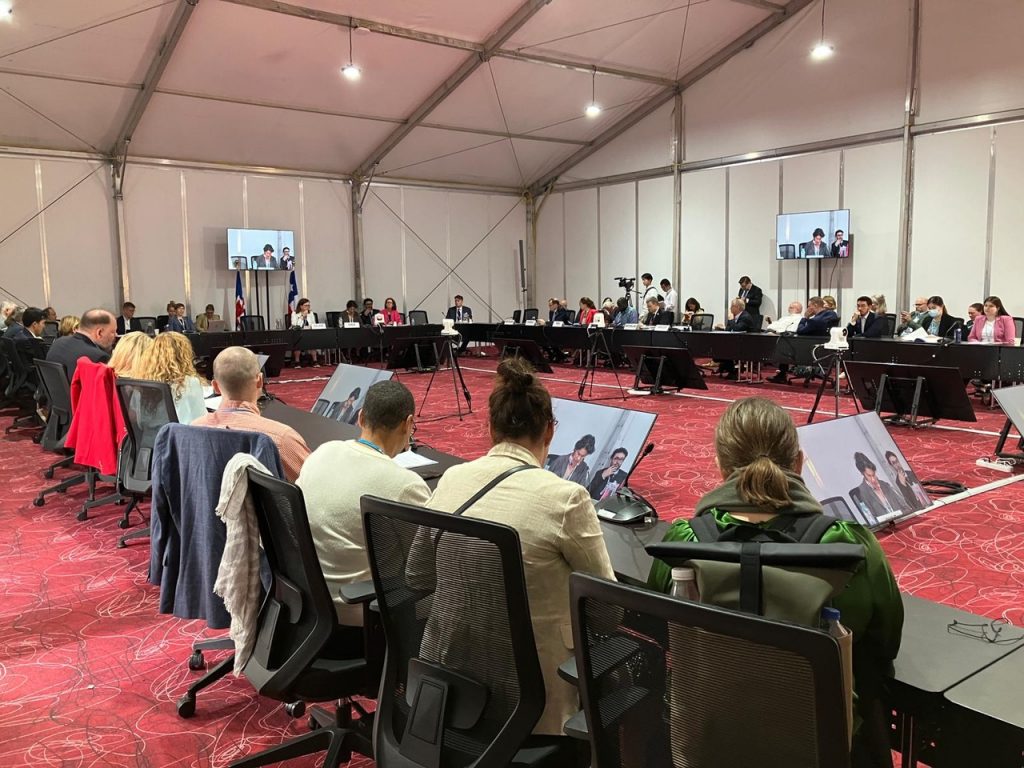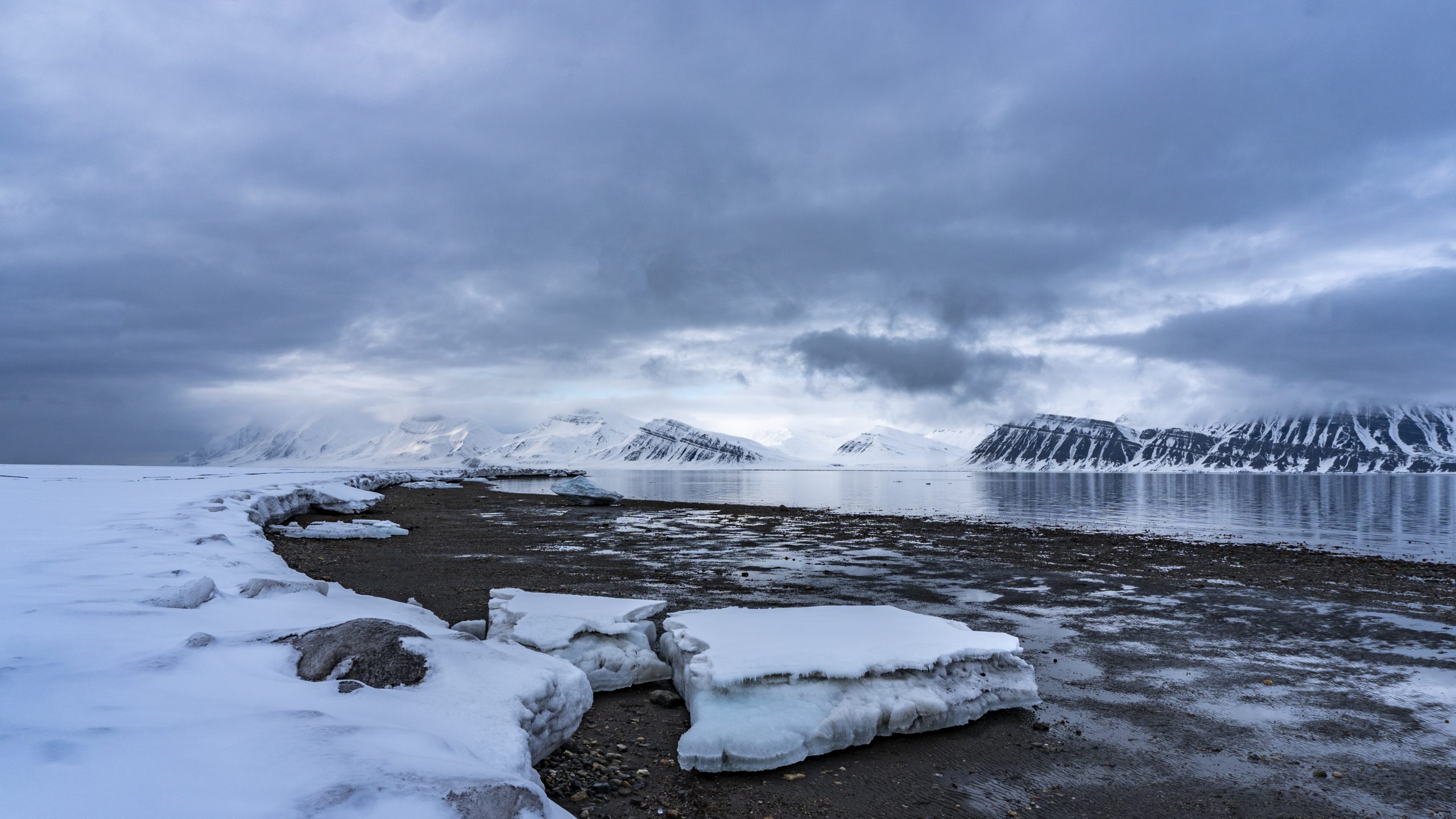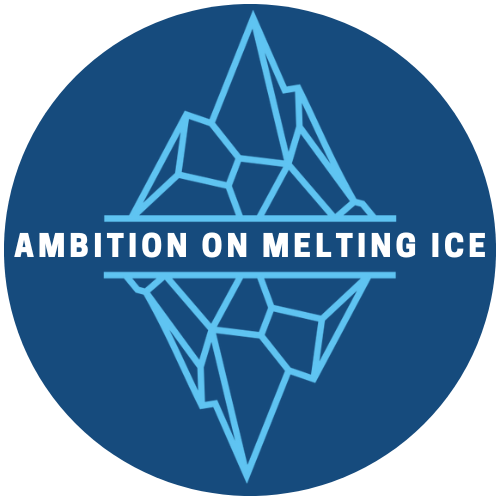At COP27 in Sharm El-Sheikh, Egypt, a broad coalition of 20 governments — led by the two polar and mountain nations of Chile and Iceland — joined together to create a new high-level group Ambition on Melting Ice: On Sea-level Rise and Mountain Water Resources. The AMI group includes polar and mountain nations as well as low-lying nations that all exist on the front lines of cryosphere changes today.
The Declaration below was signed on November 16, 2022 in Sharm El-Sheikh by the founding governments of Chile (Co-chair), Iceland (Co-chair), Austria, Czech Republic, Finland, Georgia, Kyrgyz Republic, Liberia, Mexico, Monaco, Nepal, New Zealand, Norway, Peru, Samoa, Senegal, Sweden, Switzerland, Tanzania, and Vanuatu.

AMI Declaration
Climate change already has caused dramatic changes in the global cryosphere, Earth’s snow and ice regions. Severe impacts are already occurring in relation to water shortages from shrinking glaciers and snowpack; global sea-level rise due to loss of ice from ice sheets, glaciers and ocean warming; and landslides triggered by permafrost thaw. Lives and livelihoods are threatened by, and some already lost from, these changes. Indigenous peoples in both the Arctic and mountain regions have been among the earliest affected.
Today’s grave impacts from cryosphere loss pale, however, in comparison to what the latest science tells us would be increasingly severe and widespread impacts at higher levels of global warming. The IPCC Sixth Assessment Cycle reports, including the Special Report on Ocean and Cryosphere in a Changing Climate, conclude that such changes in the cryosphere will worsen with each additional increment of global warming and greenhouse gas emissions in the atmosphere. The consequences will occur both within and far beyond those in polar and mountain regions. In polar fisheries, in addition to warming these include rapid acidification of polar oceans, which scientists say will reach a critical threshold at 450ppm – a level we are on track to reach in just 12 years. Our generation risks leaving a terrible legacy to our children, grandchildren and many future generations due to the irreversibility of many of these changes.
We wish to make it clear: protecting the cryosphere through vigorous climate action is not a matter for mountain and polar nations alone: it is a matter of urgent global concern, because the greatest impacts on human communities lie well outside these regions. Rapid decreases in global greenhouse gas emissions, to keep alive the possibility of limiting global warming to 1.5°C, are our best option to limit cryosphere losses and the resulting chain of potential catastrophes.
The need to make pre-2030 emissions reductions a matter of urgency is an imperative for the benefit of all our societies. To signal our collective action, we count among our members, not only polar and mountain nations but also low-lying nations that in reality, exist on the front lines of cryosphere changes today. We welcome efforts to raise this cryosphere science in other global and regional polar, mountain and ocean forums, including at the UN General Assembly.
Despite the scale and gravity of global impacts, some of them already tragically inevitable, the human community still has the opportunity to mitigate emissions, avoid crossing critical thresholds and contain the worst damage, and allow some degree of adaptation. The alternative is trillions of dollars of economic loss in coming decades as we reach limits of feasible adaptation, with mass migrations and growing threats to geo-political security.
Rapid and emergency-scale decreases in global CO2 and other greenhouse gas emissions, across all sectors, to keep alive the possibility of limiting global warming to 1.5°C, is our best option to slow progressive cryosphere loss and the resulting widespread global catastrophes. Such decreased emissions, of 50% by 2030 from 2019 levels, with carbon-neutral investments and economic development, will provide a better human and environmental future, with improvements from low emissions seen by the time today’s children reach middle age.
The alternative is a clear existential threat to human civilization that none of us wish to leave as our generation’s planetary legacy.
November 16, 2022

